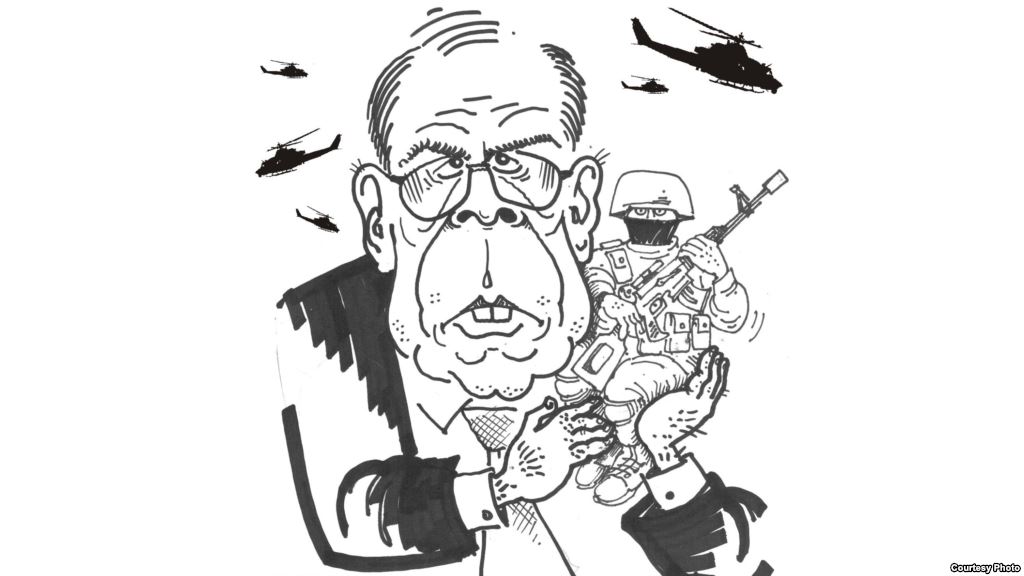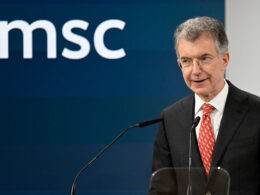Hungary became the first NATO ally to secure exemption from US sanctions on Russian energy when President Donald Trump granted Prime Minister Viktor Orban a one-year waiver during their 7 November White House meeting, a White House official confirmed to Reuters.
The exemption allows Hungary to continue purchasing Russian oil and gas in exchange for over $1.4 billion in Hungarian commitments to US nuclear, defense, and energy purchases. The move marks a significant breach in Western sanctions against Russia, as Orban—who has vowed to veto Ukraine's EU accession and opposes its NATO membership—openly aligned with Trump in characterizing the war as unwinnable and positioning both leaders as the sole "pro-peace" voices in the West.
This development threatens Ukraine's strategic position because it weakens the coordinated sanctions regime designed to constrain Russian energy revenues that fund Moscow's war effort, while emboldening an EU and NATO member to maintain financial flows to Russia and block Ukrainian integration into Western security structures.
What happened at the White House
Trump welcomed Orban for a bilateral meeting and lunch that yielded immediate economic and diplomatic results.
Politico reported that Hungary signed a memorandum of understanding on civil nuclear cooperation valued at $20 billion, including construction of 10 small modular reactors in Budapest using US nuclear technology. Hungary also committed to purchasing $114 million in nuclear fuel from US-based Westinghouse, $600 million in liquified natural gas, and $700 million in defense materials.
The centerpiece of Orban's visit was securing relief from US sanctions targeting Russian energy. According to Reuters, a White House official confirmed Hungary received a one-year exemption from sanctions on Russian oil and gas. Trump justified the decision by citing Hungary's landlocked geography, stating "it's very difficult for him to get the oil and gas from other areas" and noting that Hungary lacks seaports for alternative energy imports.
The exemption contradicts Trump's previous pressure on European nations to cut Russian energy purchases to economically isolate Moscow.
BBC analysis noted that Hungary and Slovakia together have paid Russia $13 billion for oil between Russia's February 2022 invasion and the end of 2024, providing critical hard currency to Moscow despite Western sanctions efforts.
Why this matters for Ukraine's security
The sanctions exemption directly undermines Ukraine's defensive capabilities by preserving Russian energy revenues that finance military operations. Russian oil and gas sales remain Moscow's primary source of hard currency for weapons procurement, troop salaries, and military industrial production—the economic foundation sustaining Russia's invasion.
More strategically, the exemption creates the first formal crack in the unified Western sanctions architecture. If a NATO and EU member can obtain preferential treatment on Russian energy, other nations may seek similar exemptions, accelerating the collapse of coordinated economic pressure that has been one of the West's primary non-military tools against Russian aggression.
The exemption also rewards Orban's obstructionism toward Ukraine within European institutions. Politico reported that Orban has declared he would veto Ukraine's accession to the European Union and opposes Ukrainian NATO membership—positions that directly contradict the policies of most NATO allies and EU members who view Ukrainian integration as essential to long-term European security.
Orban's opposition to Ukrainian victory and Western support
During the White House meeting, Orban openly expressed skepticism about Ukraine's ability to prevail militarily against Russia. When Trump asked whether Orban believed Ukraine could win the war, Orban responded evasively: "Miracle[s] can happen," according to Politico. This framing aligns with Trump's characterization of the war as unwinnable through military means and contradicts the position of NATO leadership and most European governments that sustained military aid is essential to Ukrainian defense.
Orban described the US and Hungary as the only "pro-peace" governments addressing the Russia-Ukraine war, and characterized other European nations as "misunderstanding" the conflict by believing Ukraine can prevail on the battlefield, according to the Politico report. This rhetorical positioning isolates Ukraine diplomatically by suggesting that support for Ukrainian military resistance represents a misguided approach rather than legitimate defense of sovereignty.
Trending Now
Trump also revived plans to host a peace summit in Budapest with Russian President Vladimir Putin to discuss Ukraine. Last month, Orban was reportedly offered the opportunity to host such a summit, though that plan "quickly disintegrated," Politico reported. During the 7 November meeting, Trump stated: "If we have it, I'd like to do it in Budapest"—suggesting Hungary could serve as the venue for negotiations that would likely marginalize Ukrainian input and European perspectives on territorial integrity and security guarantees.
The trade package and Hungary's pivot
The economic package Hungary committed to represents a significant financial outlay designed to demonstrate reciprocity with the Trump administration. The BBC reported that the nuclear agreement includes construction of 10 small modular reactors valued between $10 billion and $20 billion, which Hungary needs to power expanding Chinese battery manufacturing plants around the country. These smaller nuclear facilities face fewer construction delays and licensing complications than traditional large-scale plants.
Hungary also agreed to purchase $114 million in nuclear fuel from US-based Westinghouse for its Paks 1 nuclear power station, which was built by the Soviet Union in the 1980s and currently supplies approximately 40% of Hungary's electricity needs, according to the BBC. The US agreement to lift nuclear sanctions on Hungary may help restart the long-delayed Paks 2 expansion project, which has been financed and designed by Russia's Rosatom but faces persistent technical and licensing obstacles.
Orban framed the visit as the beginning of "phase two" in Hungary's improving relationship with the Trump administration, referencing what he characterized as "politically motivated sanctions" from the Biden administration against his top aide, Antal Rogan, who was sanctioned for corruption allegations, Politico reported.
Implications for Western unity and Ukrainian support
The meeting creates several concerning scenarios for Ukraine and the broader Western alliance. If Trump's precedent encourages other nations—particularly those with less stable democratic institutions or closer ties to Russia—to request similar exemptions, the coordinated sanctions regime could fragment rapidly. The divergence between Hungary's position and that of other NATO and EU members will deepen existing tensions within both institutions, undermining the unified deterrence posture that underpins Ukrainian security.
The exemption complicates Congressional support for Ukraine. Congress controls military aid to Kyiv and now faces questions about backing a country while its NATO ally undermines sanctions on Russia's main revenue source. Trump's willingness to host peace talks in Budapest, paired with Orban's skepticism about Ukrainian victory, signals negotiations could pressure Ukraine into territorial concessions and forced neutrality.
The BBC noted that critics argue energy dependence on Russia is merely being replaced by energy dependence on the US, while the Orban government contends it is achieving greater diversity of supply. However, the one-year timeframe for the exemption—expiring just after Hungary's April 2026 election—suggests the waiver is designed primarily to boost Orban's domestic political position rather than address structural energy security concerns.





